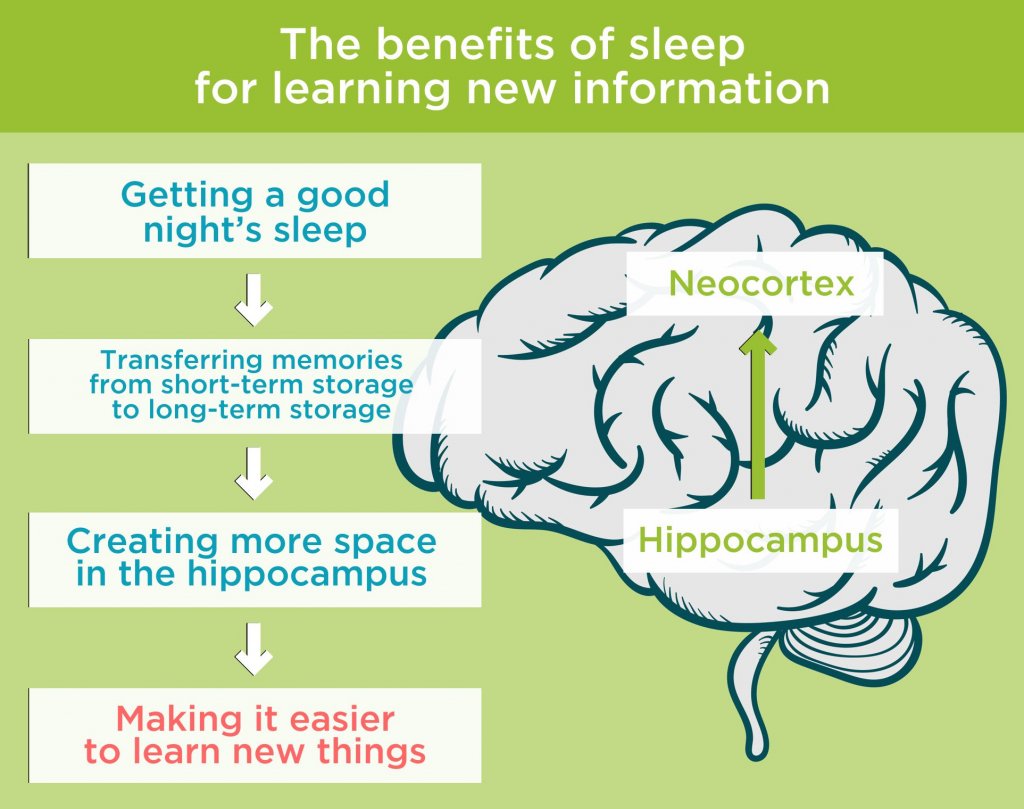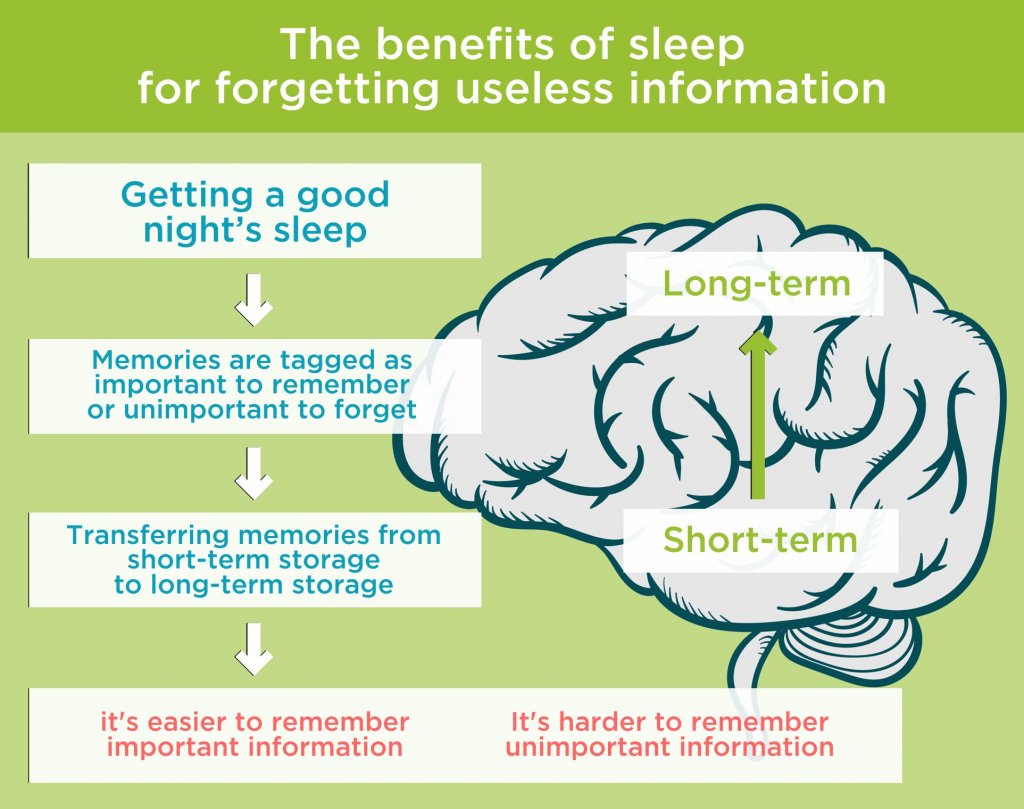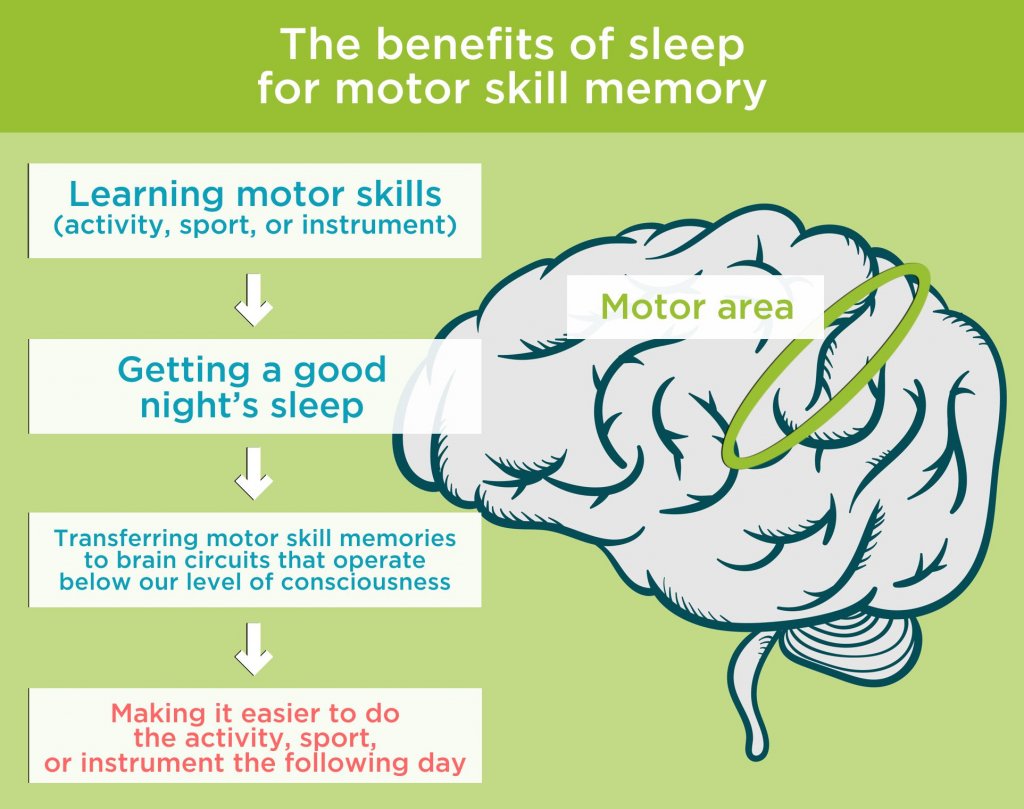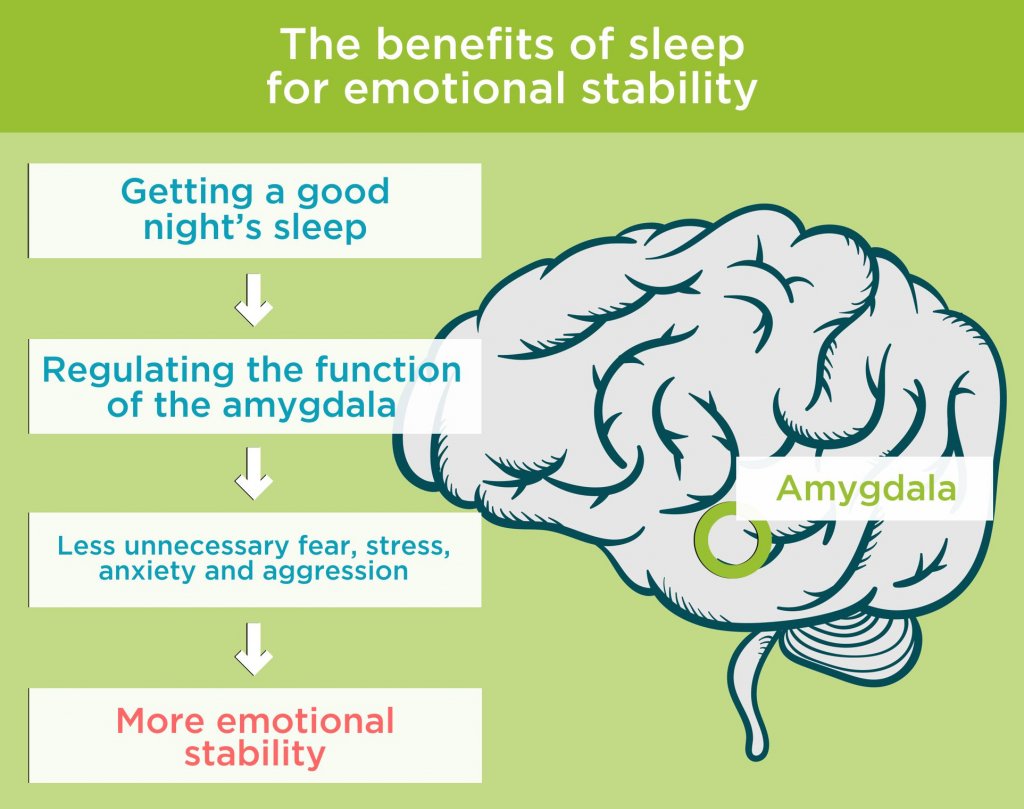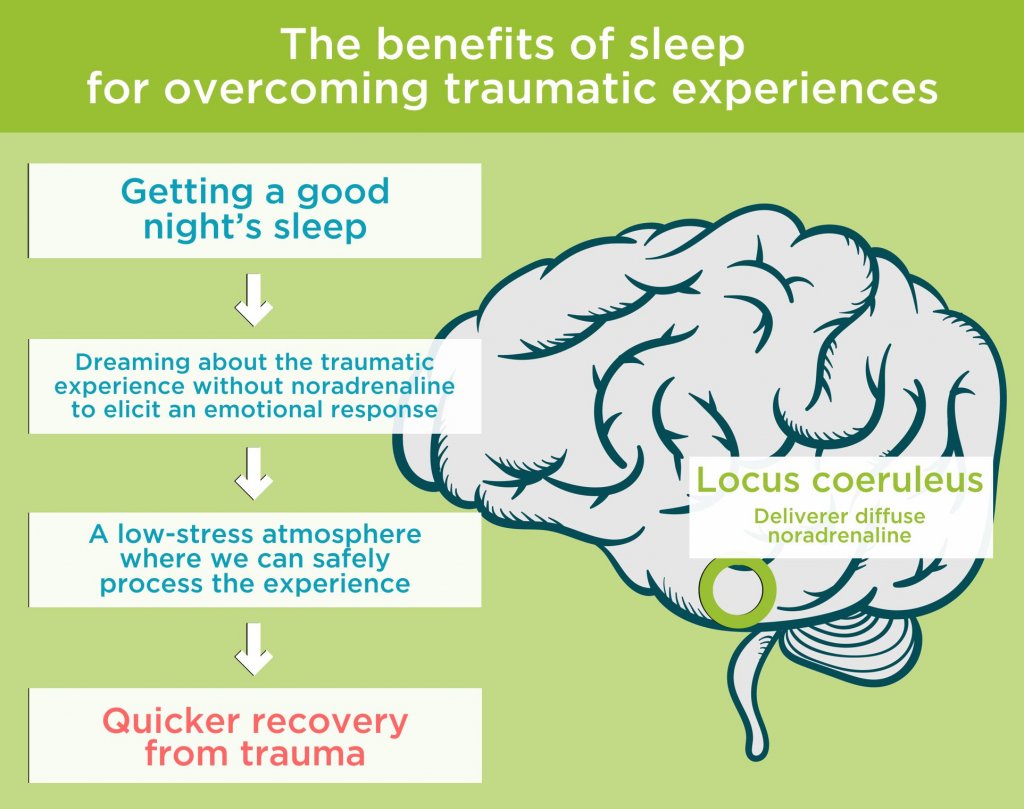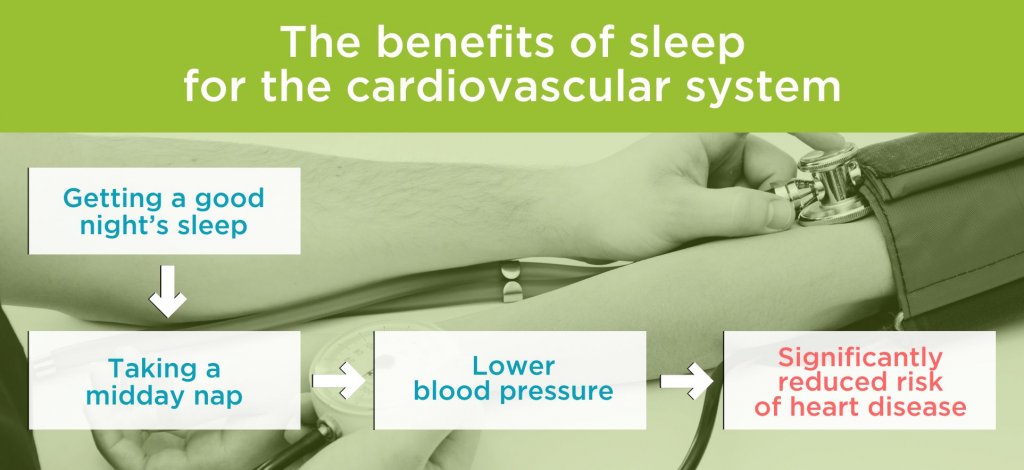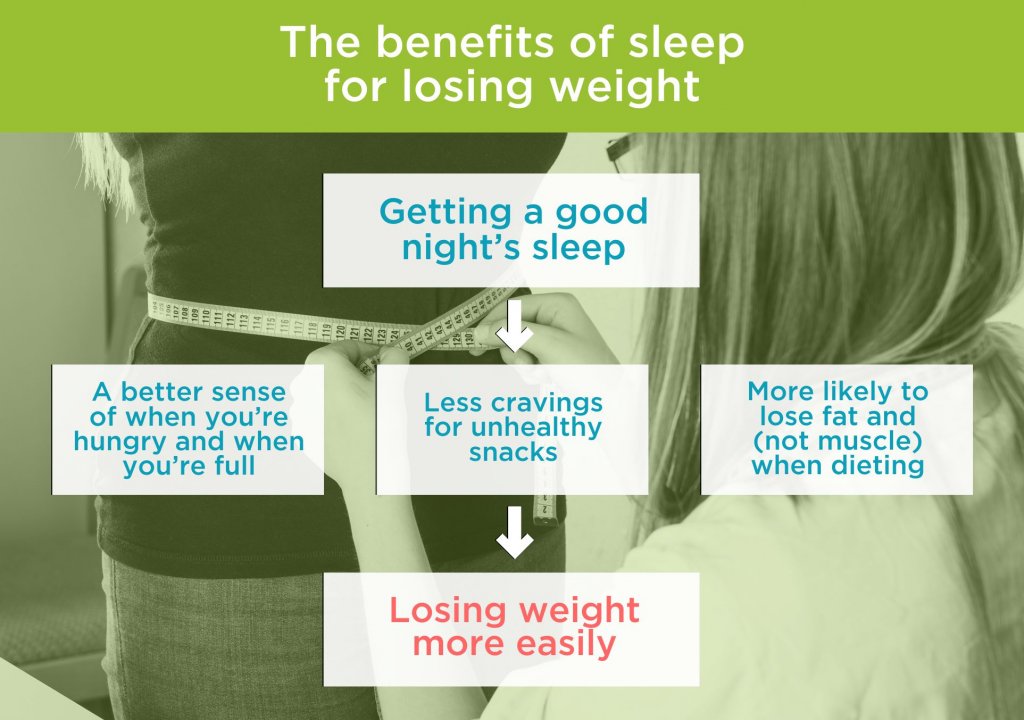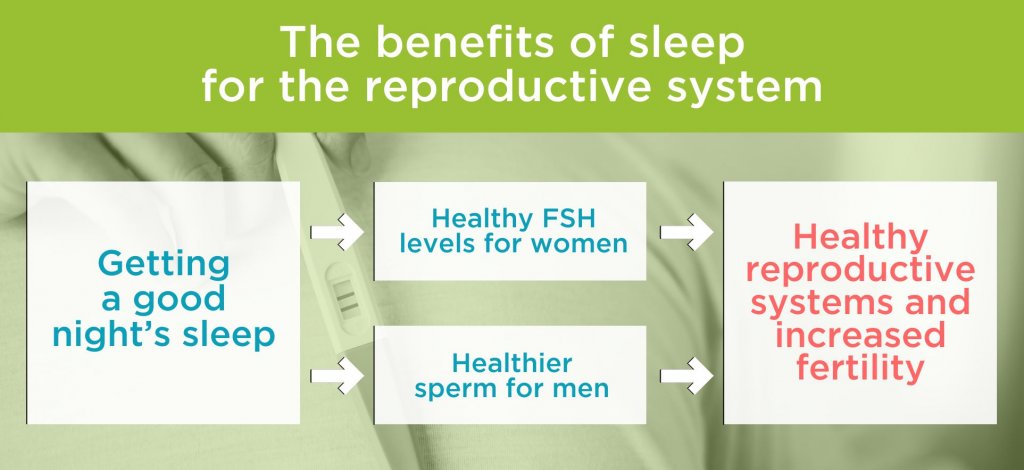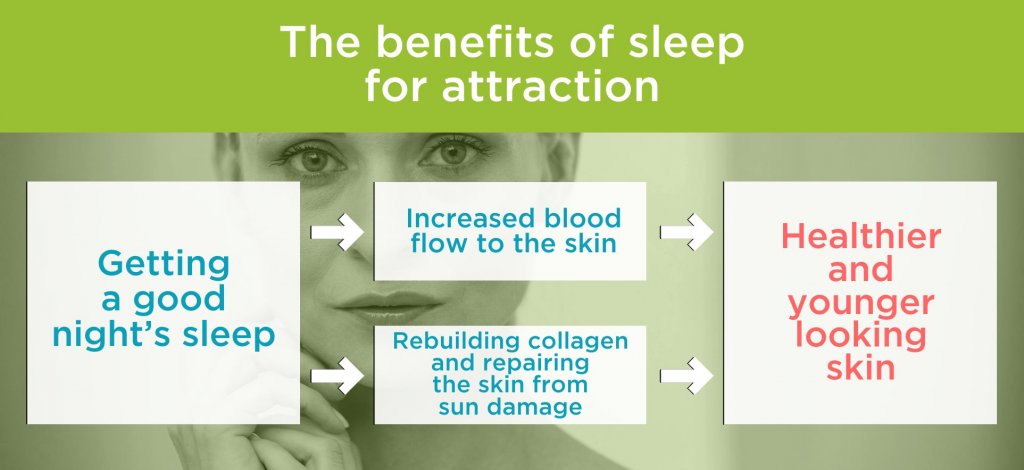Scientists have only recently begun to investigate the benefits of sleep, but it hasn’t taken them long to start comparing sleep to the fountain of youth.
In fact, scientists are now discovering that the benefits of sleep actually exceed the benefits of the mystical, magical fountain. Sleep not only restores youth, vitality, strength, and health but also sharpens the mind, improves our memory, and enhances our emotional intelligence. Sleep can even help us recover from emotional trauma.
In this article, we’ll talk about some of the most incredible benefits of sleep that scientists have discovered in recent years. You’ll learn how sleep can help you ace an exam, master your instrument, lose weight, and even fight cancer. Then, we’ll talk briefly about the flip side. The consequences of sleep deprivation are just as astonishing as the benefits. Lastly, in case you have difficulty sleeping, we’ll give you some advice to improve your sleep.
The benefits of sleep for the mind
The benefits of sleep for learning new information
If you’ve ever spent a full day studying, you know that the more information you study, the more difficult it is to retain all of it. Have you ever wondered why?
It turns out, the brain actually has limited short-term memory storage capacity, which means there’s a limit to how much we can learn in a day. [1]What are the differences between long-term, short-term, and working memory? Scientists have discovered that a good night’s sleep can help solve this problem. Here’s how:
When we sleep, the information we learned during the day gets transferred from our short-term memory in the hippocampus to our long-term memory in the neocortex. This opens up more space in the hippocampus, so we can learn new things the following day.
Relevant Research
In one study, participants were tested for their ability to memorize and then immediately recall 100 names and faces, once at noon and once at 6 pm. Half of the participants were allowed to nap between memorization sessions. The other half of the participants remained awake.
For the second session, the learning ability of those in the nap group was about 18% higher than those in the awake group. This study demonstrates how getting a good night’s sleep before studying can help make learning easier[2]System consolidation of memory during sleep.
The benefits of sleep for remembering and recalling important information
Have you ever completely blanked on a test question that you studied for hours the night before? Forgetting is not the best feeling.
Fortunately, scientists have discovered that sleep not only helps transfer memories from short-term memory to long-term memory, making learning easier, but sleep (particularly deep Non-REM sleep) also helps strengthen our memories, making it easier to recall what we’ve learned. [3]Sleep After Learning Aids Memory Recall Here’s how:
As we sleep and our memories are transferred from short-term storage in the hippocampus to long-term storage in the neocortex, the memories are reactivated and, essentially, replayed out in our brains. [4]Sleep smart—optimizing sleep for declarative learning and memory This strengthens the memories and makes it easier to recall them the next day. [5]SWS Essentially, we’re still learning in our sleep.
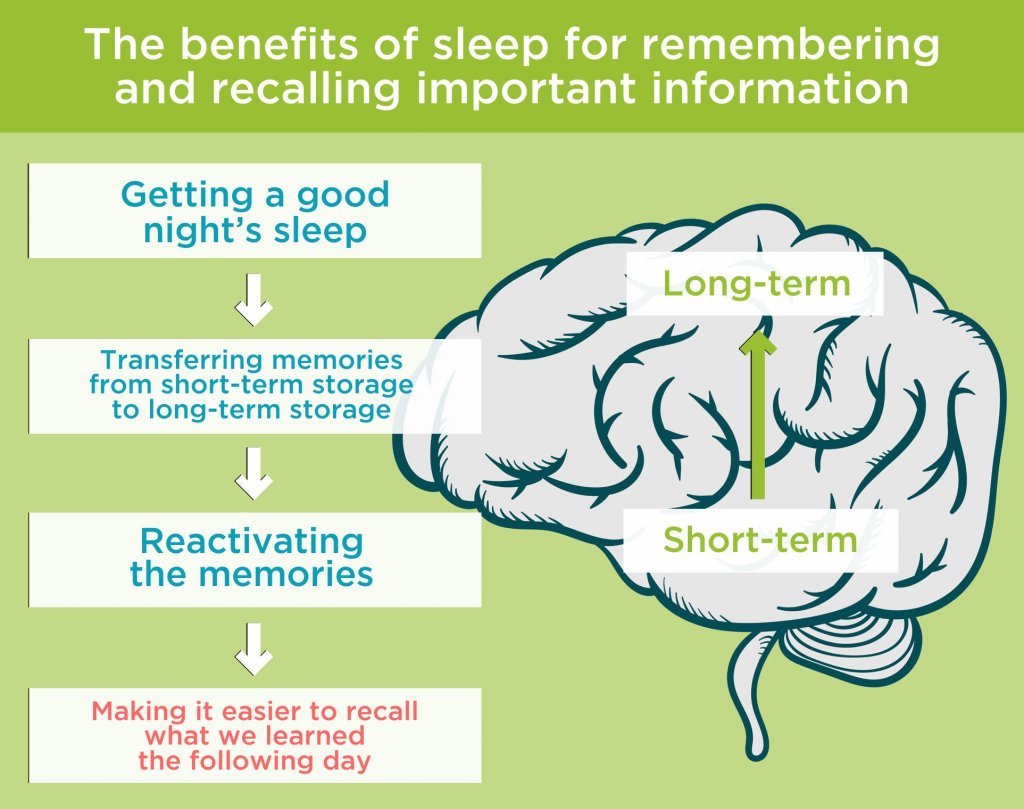
Relevant Research
In one study, researchers set out to test the correlation between deep Non-REM and memory recall. Participants were instructed to study a list of facts and were then allowed to sleep for a full eight hours. While they slept, electrodes on their heads measured their brain waves to determine how much of each stage of sleep they obtained.
Researchers found a clear correlation between deep Non-REM sleep and memory recall: The more deep Non-REM sleep, the more information the participants remembered the following day[6]About Sleep’s Role in Memory. A good night’s sleep after you learn can help you remember more information.
The benefits of sleep for forgetting useless information
Forgetting is not the best feeling, but sometimes forgetting can be useful, especially when forgetting can help you remember new information. Once we get a new locker combination, somehow it doesn’t take long until we forget the old one. But, why would we need to remember the old one when we no longer use it? We don’t, and actually, forgetting the old combination makes it easier to learn and remember the new one[7]Why we have to forget to remember.
Forgetting information can be just as helpful as remembering information, and scientists have discovered that one of the many benefits of sleep is helping us to forget. Here’s how:
As we sleep and our memories are transferred from short-term storage in the hippocampus to long-term storage in the neocortex, these same memories are also being tagged as important and useful to remember or unimportant and beneficial to forget. Sleep helps us to retain only the useful memories and forget the ones that don’t benefit us[8]Memory Tagging.
Relevant Research
In one experiment, participants studied a long list of words presented on a computer screen. Some were tagged with a green R for remember and other with a red F for forget. Half of the participants were allowed a 90-minute afternoon nap. The others stayed awake. Later that day, participants were instructed to recall as many words as possible (regardless of whether they were originally tagged with an R or an F.
The participants who slept remembered significantly more R words and forgot significantly more F words than participants who didn’t sleep. The results demonstrate that sleep plays a crucial role in deciding what to remember and what to forget, which, essentially, makes learning and studying a lot easier. [9]Why We Sleep
The benefits of sleep for motor skill memory
If you’ve ever tried learning an instrument, you know that you can’t learn without sufficient practice. But did you know that sleep also plays an essential role in helping you master your instrument?
Scientists have discovered that sleep is extremely beneficial for motor skill memory, commonly referred to as “muscle memory”. Here’s how:
When we practice any instrument, sport, or activity, we form motor skill memories. When we sleep, those motor skill memories are transferred to brain circuits that operate below our level of consciousness, so the next time we practice, what we were learning suddenly feels effortless. [10]Sleep and the Time Course of Motor Skill Learning Sleep is absolutely essential to forming so-called “muscle memories”.
Relevant Research
In one study, right-handed participants were instructed to learn to type a number sequence on the keyboard with their left hand. Half of the participants learned during the evening and were tested 12 hours later after a full night of sleep. The other half of participants learned in the morning and were tested 12 hours later after a full day awake.
Participants in the sleep group showed a whopping 20% increase in speed and a 35% increase in accuracy. Those who didn’t sleep showed no improvement whatsoever. When the no-sleep group was allowed to sleep and retested the following morning, they showed an identical bump in speed and accuracy. The study demonstrates how sleep plays a crucial role in learning and perfecting motor skills. [11]Sleep-dependent learning and motor-skill complexity
The benefits of sleep for emotional stability
When we don’t sleep, we feel irritable, cranky, and aggressive. Conversely, a good night’s sleep puts us in a better mood and helps us feel more emotionally stable. Sleep plays a crucial role in maintaining our emotional stability. Here’s how:
Much of our emotional stability is dependent on our amygdala, a structure in the brain that’s responsible for processing strong, negative emotions like fear, stress, anger, and aggression. It turns out, sleep (REM sleep in particular) is crucial for regulating the stable functioning of the amygdala and, therefore, regulating negative emotions[12]REM sleep de-potentiates amygdala activity to previous emotional experiences. So, when we get a good night’s sleep, we feel more emotionally stable, and when we’re sleep deprived, we feel more irritable, stressed out, aggressive, and angry.
Relevant Research
In one study, individuals were asked to label the emotions of faces on a screen after a full night of sleep and then again after being significantly sleep deprived. The sleep-deprived participants demonstrated a clear default of fear bias, inaccurately labeling a lot more faces as threatening. [13]The Role of Sleep in Emotional Brain Function The results demonstrate how sleep-deprivation can cause an overactive amygdala and, as a result, cause unnecessary stress, fear, and aggression.
The benefits of sleep for overcoming traumatic experiences
When was the last time you experienced a traumatic event like a bad breakup, the loss of a loved one, or a car crash? Did you find yourself dreaming about the event in the days and weeks afterward?
Scientists are now discovering that REM sleep (more specifically, the dreams we dream during REM sleep) can help us heal from traumatic experiences. Here’s how:
There is a stress-related chemical in our brains called noradrenaline (also known as norepinephrine) that’s active at all times of day and night except for during REM sleep. During REM sleep, this anxiety-inducing chemical is completely shut off in the brain, which allows us to dream about these traumatic events without the emotional charge we would experience while awake. Our dreams provide us with a low-stress atmosphere where we can safely process our emotions and, therefore, recover faster from the trauma. [14]Healing Trauma with Our Dreams.
Relevant Research
In one study, two groups of participants were shown emotional photos designed to stimulate activity in the amygdala (the emotional center of the brain that creates painful feelings). One group viewed the photos at night and then twelve hours later after a full night’s sleep. The other group viewed the photos in the morning and then twelve hours later without sleeping between viewings.
The group that slept between viewings showed a significant reduction of amygdala activity during the second viewing, indicating a weaker emotional reaction. The group that remained awake, on the other hand, showed the same amount of amygdala activity as they had twelve hours prior. Some participants in the no-sleep group even experienced a stronger reaction from the amygdala during the second viewing.
Furthermore, in the same experiment, scientists discovered that REM sleep (light dream sleep), in particular, was responsible for the success of the overnight therapy – the more time spent in REM sleep, the less reactive the amygdala the following day.[15]The human emotional brain without sleep — a prefrontal amygdala disconnect
The benefits of sleep for the body
The benefits of sleep for the cardiovascular system
Cardiovascular diseases are the cause of 31% of deaths worldwide. They are the leading cause of death for men and women throughout the world. [16]Heart Disease: Facts, Statistics, and You
Scientists have discovered that sleeping well at night, or even taking midday naps, can significantly lower blood pressure and, as a result, significantly reduce risk of heart disease.
Relevant Research
In one study, scientists set out to investigate the effects of napping on the blood pressure of participants who were, on average, 62 years old. About 25% of them smoked, had a diagnosis of type 2 diabetes, or both.
The researchers found that the participants who took a daytime nap saw a 5.3 mm Hg drop in systolic blood pressure, which, the researchers explained, is about as much as someone could expect when taking blood pressure medication or making certain lifestyle changes to lower blood pressure.[17]A nap a day keeps high blood pressure at bay
The benefits of sleep for losing weight
Have you ever tried to lose weight? Were you successful? Sticking to a diet and exercise plan isn’t easy for most people, and, oftentimes, even the people that do manage to stick to a diet and exercise plan still have difficulty losing weight.
Fortunately, scientists are discovering that sleeping well could be one of the best ways to lose weight. Here’s how:
There are three reasons why sleep is so important for weight loss:
- Sleep affects the hormones in your brain that control your sense of hunger. When you’re sleep deprived, the “I’m hungry” hormones are overactive and the “I’m full” hormones are underactive. [18]Relationship Between Sleep Quality and Quantity and Weight Loss in Women Participating in a Weight-Loss Intervention Trial
- Sleep affects your cravings for snacks. Sleep loss causes the release of endocannabinoids in your brain, increasing your desire for unhealthy snacks like donuts and cookies.
- Sleep controls whether you lose muscle or fat. If you follow a diet and exercise plan with sufficient sleep, most of your weight loss will come from fat loss. Contrarily, if you follow a diet and exercise place with insufficient sleep, you will likely lose muscle mass instead of fat. [19]Insufficient sleep undermines dietary efforts to reduce adiposity
Relevant Research
In one study, researches followed almost 70,000 women for 16 years and found that those who slept five hours a night were 32 percent more likely to gain a lot of weight (33 pounds or more) than women who slept at least seven hours a night. [20]3 Charts | The Importance of Sleep for Weight Loss | Visualized Science
The benefits of sleep for the reproductive system
p>Infertility, or difficulty conceiving, is a serious problem for many Spanish couples. About 15 to 20% of Spanish couples of reproductive age (approximately 800,000 people) are currently having problems conceiving, which makes Spain one of the least fertile countries in Europe alongside Italy, Greece, Russia, and the Ukraine. [21]Europe the continent with the lowest fertility Interestingly enough, according to a survey conducted by a sleep tracking app called sleep cycle, these are also the countries getting the least amount of sleep in Europe. [22]Which countries get the most sleep – and how much do we really need? Is this a mere coincidence?
Research suggests that it’s no coincidence at all. Sleep, or lack thereof, directly impacts fertility for both men and women. Here’s how:
For women, sleeping less than six hours per night leads to a drop in FSH, the follicle stimulating hormone that contributes to ovulation and is necessary for reproduction. [23]Relationship Between Sleep and Secretion of Gonadotropin and Ovarian Hormones in Women With Normal Cycles Furthermore, women sleeping out of alignment with their natural circadian rhythms (from night shift work, for example) are more likely to experience irregular menstrual cycles which could also make conception more difficult. [24]Rotating shift work and menstrual cycle characteristics For men, sleeping greatly impacts sperm health. Poor sleep or insufficient sleep leads to lower sperm counts and fewer sperm.
Relevant Research
One study found that men who slept too little or too much (less than seven hours or more than nine hours) were over 40% less fertile than men who slept the recommended amount. [25]Sleep and male fecundity in a north American preconception cohort study
Another study found that women sleeping less than six hours were secreting 20% less FSH [26]Relationship Between Sleep and Secretion of Gonadotropin and Ovarian Hormones in Women With Normal Cycles then women who were getting sufficient sleep.
The benefits of sleep for the immune system
Do you remember the last time you were sick? Do you remember feeling extra tired?
Most of us think of fatigue as a sign that we’re sick or getting sick, and it definitely is; fatigue and illness go hand in hand. But, sleepiness isn’t a mere symptom of illness. Rather, the sleepiness we feel is more like a signal that we should go to sleep, so our immune system can get to work.
Sleep is absolutely necessary for the immune system to function properly. Here’s how getting a good night’s sleep helps the immune system:
Sleep can help prevent sickness. In a recent study, scientists found a clear, linear relationship between sleep and infection rate. The less sleep an individual was getting in the week before facing a common cold, the more likely it was that they would be infected and catch a cold. [27]Short Sleepers Are Four Times More Likely to Catch a Cold
Sleep can help produce antibodies necessary to prevent future illness. In 2002, scientists discovered that sleep profoundly impacts the immune system’s response to the standard flu vaccine. When participants slept for 7.5 to 8.5 hours during the week prior to receiving the vaccination, their immune systems generated a powerful antibody reaction. Participants sleeping only four to six hours, on the other hand, produced less than 50% of the antibodies, making them twice as likely to get the flu despite being vaccinated. [28]Effect of sleep deprivation on response to immunizaton
Sleep can help fight cancer. In a four-week study conducted on mice, scientists found that sleep disturbance caused a 200% increase in the speed and size of cancer growth. [29]Fragmented sleep accelerates tumor growth and progression through recruitment of tumor-associated macrophages and TLR4 signaling
The benefits of sleep for attraction
Have you ever heard of beauty sleep? Beauty sleep is more than just a myth or a saying. Sleep does actually make us look more beautiful. Here’s how:
When we sleep, blood flow increases to our skin which helps to rebuild collagen and repair any damage experienced from UV exposure. The result is reduced wrinkles and age spots and healthier looking skin. [30]6 Ways to Maximize Your Beauty Sleep for #WokeUpLikeThis Skin
Relevant Research
In one study, 25 participants (age range 18–47 years) were photographed after two days of sleep restriction (sleeping four hours each night) and again after two days of normal sleep (sleeping eight hours each night). Then, other participants rated their health and attraction based on the photographs. The results were clear. Participants were perceived as both healthier and more attractive after having slept for eight hours. [31]Negative effects of restricted sleep on facial appearance and social appeal.
Discussing the many benefits of sleep
As you can see, the benefits of sleep are truly amazing.
First and foremost, sleeping between seven and nine hours a night can reduce your risk of contracting some of the world’s deadliest diseases like heart disease, cancer, diabetes, and Alzheimer’s disease. Reducing your risk of these diseases can add years to your life.
Furthermore, sleeping well can make you smarter. If you sleep between seven and nine hours per night, you’ll be able to learn easier, retain more information, and remember the information you learned with greater ease. All of the following can help you ace a test or master an instrument.
Not to mention, sleeping well is great for your emotional intelligence and emotional stability. Getting a good night’s sleep is a sure way to improve your mood and improve your social interactions.
All in all, sleep does much more than simply combat tiredness. Sleep can help you live a better, longer life.
The consequences of sleep deprivation
It’s nice to read about the many benefits of sleep, but it’s also important to understand the flip side. What are the consequences of sleep deprivation? How much are we really hurting ourselves when we sleep less than seven to nine hours per night?
Well, for starters, not sleeping enough has fatal consequences. Did you know that driving drowsy is actually more dangerous than driving drunk? Some other fatal consequences include an increased risk of cancer, heart disease, Alzheimer’s disease, and diabetes. Not to mention, sleep deprivation has been closely linked to suicide. [32]The Link between Suicide and Insomnia: Theoretical Mechanisms
Secondly, sleep deprivation significantly decreases quality of life. It is tied to all kinds of anxiety disorders and mental illnesses. Not sleeping enough wreaks havoc on the emotions causing depressing, anxiety, aggression, irritability, and more. Not to mention, sleep deprivation is horrible for the brain. We’re simply not as happy or smart when we’re sleep deprived.
Here’s the basic point: Sleeping less than seven to nine hours per night leads to poor quality of life and premature death. “I’ll sleep when I’m dead” has a nice ring to it, but it’s really not the best philosophy to live by.
How to improve your sleep
Do you struggle to fall asleep at night? Do you wake up multiple times throughout the night? In the 2019 Phillips Globals Sleep Survey, answered by over 11,000 adults from 12 countries [33]Philips global sleep survey shows we want better sleep, but only if it comes easily, two in three adults reported waking up at least once during the night, and 80% of adults reported a desire to improve their sleep.
After learning about the amazing benefits of sleep and the fatal consequences of sleep deprivation, you may also be wondering what you can do to improve your sleep.
There are many ways to improve your sleep. Some of which involve avoiding certain habits and behaviors like drinking caffeine after 3:00 PM or taking in too much blue light before bedtime.
Many people are trying out numerous sleep solutions to fall asleep faster and stay asleep longer. Some common sleeping solutions include sleeping supplements, specially formulated infusions and teas, essential oils for sleeping, blue light glasses to reduce blue light at night, and special devices designed to help you track your sleep so you can work on improving it.
Finally, you can also improve your sleep by creating an ideal sleeping environment. Great ideas include upgrading your bedding, buying black out curtains, painting your bedroom in ideal colors for sleeping, or purchasing a diffuser to fill the room with pleasant, sleep-inducing aromas.
For more ideas, check out our guide:
Referencias

